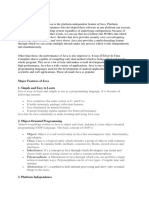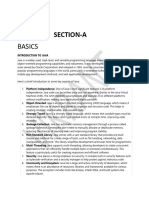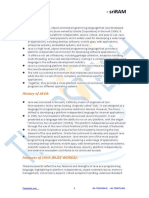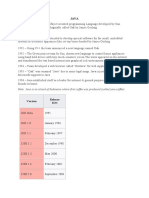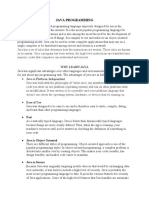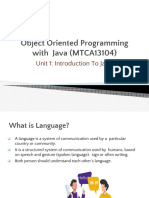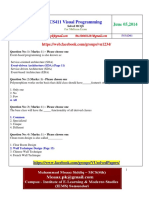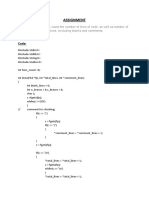0% found this document useful (0 votes)
22 views2 pagesJava HIstory Defination Features
Java is a high-level, object-oriented programming language created by James Gosling in 1991 and released in 1995, known for its 'Write Once, Run Anywhere' principle. It is platform-independent, widely used in various applications, and features strong security, robustness, and multithreading support. Java is currently owned by Oracle and has evolved through several major versions, with the latest being Java 21.
Uploaded by
prashantpatole132Copyright
© © All Rights Reserved
We take content rights seriously. If you suspect this is your content, claim it here.
Available Formats
Download as TXT, PDF, TXT or read online on Scribd
0% found this document useful (0 votes)
22 views2 pagesJava HIstory Defination Features
Java is a high-level, object-oriented programming language created by James Gosling in 1991 and released in 1995, known for its 'Write Once, Run Anywhere' principle. It is platform-independent, widely used in various applications, and features strong security, robustness, and multithreading support. Java is currently owned by Oracle and has evolved through several major versions, with the latest being Java 21.
Uploaded by
prashantpatole132Copyright
© © All Rights Reserved
We take content rights seriously. If you suspect this is your content, claim it here.
Available Formats
Download as TXT, PDF, TXT or read online on Scribd
/ 2


